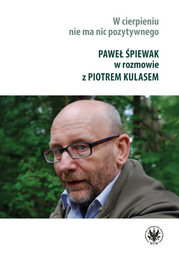penology.org
On the occasion of the publication of the two-volume monograph General penology. A culturally integrated perspective, the Prof. Genowefa Rejman European Centre for Penological Studies, in consultation with the Publishing House of the University of Warsaw, has considered it justified to formally separate the publishing series penology.org, the assumption of which is to promote broadly understood, interdisciplinary penology studies devoted to the idea of punishment, the operation of the criminal justice system, and the functioning of other, and in particular repressive, measures of social control.
The European Centre for Penological Studies, established at the Institute of Social Prevention and Resocialisation of the University of Warsaw in 2008, has published eleven monographs and collective studies to date. General penology is, therefore, the twelfth and thirteenth volumes of this series. Most of the earlier publications were also published by the Publishing House of the University of Warsaw, and their list is included in each of our subsequent publications.
The aim of the European Centre for Penological Studies, in accordance with the idea of its patron, Professor Genowefa Rejman, is to achieve a greater impact of Polish legal and social thought on the shape of European criminal policy; more information on the concept and programme of the ECPS can be found on the website penology.org. However, in order for these goals to become a reality, it is necessary to obtain an appropriate point of reference for such a debate in Poland.
We invite you to cooperate. We hope that an exchange of views - both in Polish and in other European languages - on the criminal justice system and other spheres of repressive social control will be conducive to the obtaining of a broader, interdisciplinary, view on the theoretical and practical dimensions of these enormously complex problems in Poland, Europe, and the world.
Scientific editor of the series
Prof. Jarosław Utrat-Milecki

- The interview with Paweł Śpiewak touches on the main themes of his work and interests: Polish divisions, the relationships between memory and history, Polish and Jewish tangled identities. The interlocutors attempt to understand human choices










